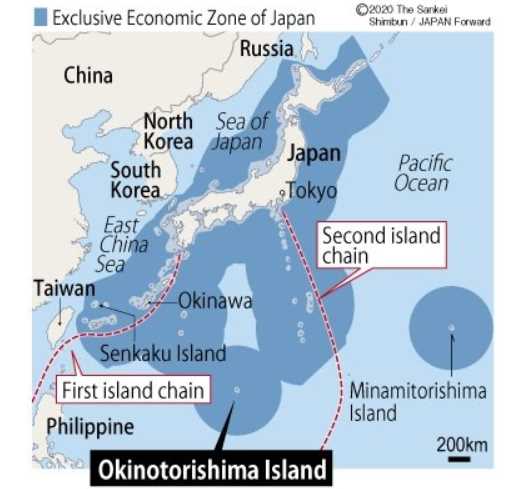
15-Jul-2023 , Updated on 7/15/2023 10:57:08 PM
Ban on 'Barbie' movie over China's controversial '9-dash line' map
Highlights
- The movie was banned in Vietnam because it depicted a map of the South China Sea with the nine-dash line, which is a cartographic representation used by China to assert its claims to the disputed waters.
- The nine-dash line is not recognized by international law, and Vietnam has long disputed China's claims to the South China Sea.
- The movie has not been banned in the Philippines, but some senators have called for it to be banned or for a disclaimer to be added to counter the map.
- Warner Bros. has defended the map in the movie, saying that it is a "child-like crayon drawing" with no intended meaning.
- The controversy over the map has highlighted the tensions over the South China Sea, which is a major shipping lane and is believed to contain significant oil and gas reserves.
The facts confirm that the new Barbie film (2023) is being prohibited from public surveys in Vietnam. The public authority has made an announcement saying that the film was prohibited in light of the fact that it contains a guide that portrays China's "nine-dash line" guarantee over the South China Ocean. Vietnam has disputed this claim for a long time, and the government considers the map to be an infringement on its sovereignty.
The "nine-dash line" is a U-molded dabbed line that China uses to differentiate its cases in the South China Ocean. The line incorporates a tremendous region of the ocean, including portions of Vietnam's mainland rack. Vietnam has never perceived China's case, and the two nations have been in a disagreement regarding the issue for a long time.
The restriction on the Barbie film is the most recent in a progression of episodes wherein Vietnam has prohibited unfamiliar movies for portraying the "nine-dash line." In 2019, the nation prohibited the vivified film Detestable for a similar explanation.
The public authority's choice to boycott the Barbie film has been met with blended responses. Certain individuals have scrutinized the public authority for being too delicate about the issue, while others have upheld the boycott, saying that safeguarding Vietnam's sovereignty is fundamental.
The prohibition of the Barbie movie serves as a reminder of the ongoing tensions that exist between China and Vietnam regarding the South China Sea. It also serves as a reminder of the government's willingness to censor films from other countries that it believes pose a threat to its national interests.
The area of the South China Sea that the Chinese government claims to be its own territory is known as the "9-Dash Line." This is questioned universally, and is a critical political worry for neighborhood nations challenging these waters, including Vietnam, since it influences things like fishing freedoms and military access. Fishing freedoms are a famously normal reason for questions among nations, and on account of China and Vietnam, the 9-Dash Line has prompted fights between Vietnamese fishing boats and the Chinese military.
It is uncertain whether Barbie engages in such behavior.
In my eyes, this isn't intended to be a sensible world guide. That is the gag. Any likenesses to genuine boundaries or questioned regions are plainly absolutely incidental.
My suspicion is that the Vietnamese authorities are using the movie's ban as an excuse to bring attention to the sea dispute by playing up the coincidence as a pro-Chinese and anti-Vietnamese reference.
Asia's only maritime border is not the Nine Dash Line. Additionally, unlike that tiny squiggle, it is not a line that faces south. What's more, screw it, how would we try and realize it should address the PRC's Nine Scramble Line rather than the ROC's Eleven Scramble Line? Or, what about Japan's assertion regarding Okinotorishima and their "totally legit EEZ"?

As may be obvious, the picture is so vague it very well may be anything, and the team on this film made a striking showing with jumbling it to keep away from any contention. But the Vietnamese government wanted to boycott it in any case in light of the fact that their perusing of this specific Rorschach test is "hostile China impedance announcing our sovereign domain as theirs?" Whatever, that's normal.
The Impact of the Ban
The ban on the Barbie movie is likely to have a significant impact on the film's box office performance in Vietnam. The country has a population of over 97 million people, and is a major market for Hollywood films. The ban is also likely to damage the reputation of Warner Bros. in Vietnam, and could make it more difficult for the studio to release future films in the country.
The ban is also likely to have a symbolic impact. It sends a message to Hollywood that China is willing to use its economic power to censor films that it does not agree with. This could have a chilling effect on the willingness of filmmakers to make films about sensitive political issues.
The Future of the Nine-Dash Line
The future of the nine-dash line is uncertain. China has shown no signs of backing down from its claims, and has continued to build up its military presence in the South China Sea. However, the international community is increasingly united in its opposition to China's claims. The United States has pledged to defend its allies in the region, and has conducted freedom of navigation operations in the South China Sea.
The ban on the Barbie movie is a reminder of the growing tensions in the South China Sea. It is also a reminder of the power of Hollywood to influence public opinion. The future of the nine-dash line is uncertain, but the Barbie movie ban is a sign that the issue is not going away anytime soon.
This is not the first time that Hollywood has been involved in a geopolitical controversy. In 2012, the film The Dark Knight Rises was banned in China because it featured a scene where the Chinese flag was burned. The film's director, Christopher Nolan, said that he was "disappointed" by the ban, but that he respected the decision of the Chinese government.
The ban on the Barbie movie is a complex issue with no easy answers. It is a reminder of the political sensitivities surrounding the South China Sea, the power of Hollywood to influence public opinion, and the future of the nine-dash line. It is an issue that will continue to be debated for many years to come.

SEO and Content Writer
I am Drishan vig. I used to write blogs, articles, and stories in a way that entices the audience. I assure you that consistency, style, and tone must be met while writing the content. Working with the clients like bfc, varthana, ITC hotels, indusind, mumpa, mollydolly etc. has made me realized that writing content is not enough but doing seo is the first thing for it.
Join Our Newsletter
Subscribe to our newsletter to receive emails about new views posts, releases and updates.
Copyright 2010 - 2026 MindStick Software Pvt. Ltd. All Rights Reserved Privacy Policy | Terms & Conditions | Cookie Policy